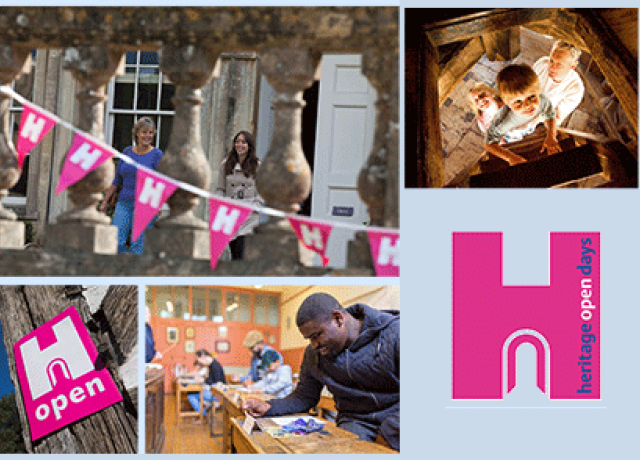Research: Local Heritage Explorations Help People Feel Better about Themselves
Research: Local Heritage Explorations Help People Feel Better about Themselves
Aiming to discover how heritage explorations influence people’s sense of wellbeing and civic pride, the Heritage Open Days team in England, UK carried out a survey among a number of adults who visited the event in 2015. The researchers found out that a great majority of respondents felt that the opportunity to visit the event and rediscover their local heritage was beneficial for them in terms of their personal wellbeing.
Namely, the survey revealed that 85% of respondents saw Heritage Open Days as an event that helped them relax, keep active and healthy or feel better about themselves. This implies various benefits of exploring local heritage and seeing it in a different light through guided tours, workshops, exhibitions, and other events regularly organised during this pan-European festival. Unsurprisingly, Heritage Open Days represent one of the largest cultural events in the country and traditionally attract millions of visitors. In 2015, the events saw several important records that speak about its popularity. As noted by Katja Condy, Heritage Open Days Manager, in our last year’s interview:
“HODs 2015 saw another record participation with 4,855 sites and 1684 local organisers registering. What made the 2015 programme so special wasn’t so much the variety of sites that opened up to the public but the sheer diversity and creativity of events that brought to life local history and culture.”
The events attracted over 3 million people, which was estimated to bring benefits of more than £15 million to local economies. In addition to this, Heritage Open Days plays an important role in raising awareness of cultural heritage around us, as suggested by the recent survey findings. It helps people connect with both their local communities and the rest of Europe through shared values and tangible or intangible heritage. Commenting on this, Condy notes:
“Once a year, Heritage Open Days showcases the treasures on our own doorsteps that many take for granted. Often people are living within a stone’s throw of an interesting site but wouldn’t consider paying to visit somewhere in their own town or region. Being completely free of charge, the festival removes a potential barrier that may be stopping people from accessing their local heritage.”
Although cultural explorations as encouraged by European Heritage Days festivals are known for their positive social impact, this survey offers some new insights into this aspect. With the ability to access a range of cultural and historical landmarks for free, more people are encouraged to explore their local heritage and in this way improve their own sense of wellbeing.
